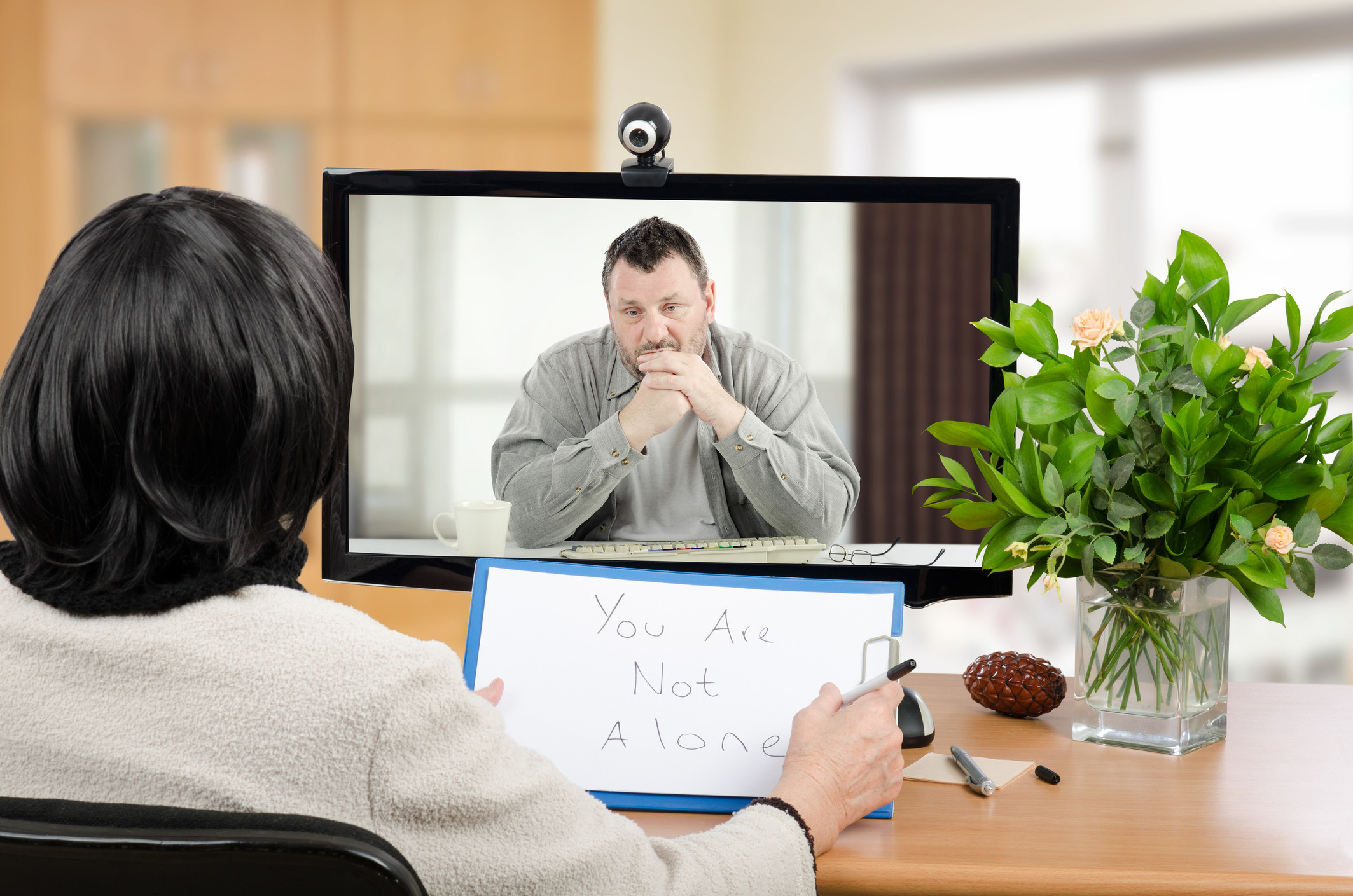
Two jobs may lower the odds of dying from Alzheimer's disease — but why?

Mastitis: What to do when your breasts are painfully inflamed

How — and why — to fit more fiber and fermented food into your meals

UTI in older women: Why postmenopausal women are susceptible to urinary tract infection, and what to do about it

Can a routine vaccine prevent dementia?

Some adults may need a measles booster shot. Who should get one and why?

Less butter, more plant oils, longer life?

Healthier planet, healthier people

Counting steps is good — is combining steps and heart rate better?

Appendix pain: Could it be appendicitis?
Mind & Mood Archive
Articles
Staying calm in turbulent times
There are several ways to manage anxiety on your own, but it's important to recognize when to get professional help.
Nowadays, simply tuning in to the daily news is likely to be stressful. Add on the stresses of daily life — such as handling work demands or adjusting to retirement, dealing with family issues, coping with illness, or caregiving — and you may begin to greet each day with apprehension and worry. In other words, you can become anxious.
"Some degree of anxiety is normal and even necessary," says Dr. Ann Epstein, a psychiatrist at Harvard-affiliated Cambridge Health Alliance and medical editor of the Harvard Special Health Report Coping with Anxiety and Stress. "Anxiety signals us that something is awry or might need our attention. However, you don't want the response to become exaggerated or to dominate your life," she says. Good coping mechanisms for stress and anxiety can help you stay healthy during turbulent times.
7 common causes of forgetfulness
Memory slips are aggravating, frustrating, and sometimes worrisome. When they happen more than they should, they can trigger fears of looming dementia or Alzheimer’s disease. But there are some treatable causes of forgetfulness.
Always worried about your health? You may be dealing with health anxiety disorder
Health anxiety can interfere with your life, but it's highly treatable.
Image: © XiXinXing/Getty Images
You spend hours on the Internet researching health information. When you get a scratchy throat you automatically think cancer — not a cold. And even when medical tests come back showing that you're healthy, it doesn't make you feel better. In the back of your mind you still feel like something is wrong.
If this sounds like you or a loved one, it may be health anxiety.
Recovering from addiction during a time of uncertainty and social distancing
Because the very nature of recovery support involves face-to-face interaction, whether in support group meetings or dispensing medication, it is at odds with the need for social distancing during the COVID-19 crisis, creating barriers to receiving support and maintaining recovery.
Larger waist size may point to dementia risk
In the journals
Older adults with a healthy weight but a large waistline could have a higher risk of developing dementia, according to a recent study.
Weight gain and obesity are known risk factors for dementia, and body mass index (BMI) is often used to estimate excess body fat. (BMI is a measure that takes into account both weight and height.)
Finding meaning in life could improve your health
In the journals
Do you feel you have a purpose in your life — or perhaps think you will never find one? The answer could influence your overall well-being, says a recent study in the January/February 2020 issue of The Journal of Clinical Psychiatry.
Researchers asked 1,042 adults, average age 65, to fill out questionnaires about meaning in their lives, and compared their responses with data on their physical and mental well-being. Respondents who believed they had meaning in their life had better physical and mental health scores and higher cognitive function compared with those who didn't.
Apps to keep us connected in a time of social distancing
The challenge of being isolated from loved ones and friends can be eased by using any of several different apps that enable various types of communication, including video calls and messages.
What works best for treating depression and anxiety in dementia?
There is evidence that antidepressants are not effective in older people with dementia. Emerging research suggests that nondrug, psychosocial interventions are the most effective treatments for depression or anxiety in older adults with cognitive impairment.
Meditation may help you catch mental mistakes
In the journals
If you want to make fewer mental mistakes, try meditation, suggests a study in the September 2019 issue of Brain Sciences.
Researchers recruited 200 people who had never meditated and led them through a guided 20-minute meditation called open monitoring. While many styles of meditation have you focus on a single object, like your breathing or a visual image, the goal of open monitoring meditation is to pay more attention to your feelings and body sensations.
Dopamine fasting: Misunderstanding science spawns a maladaptive fad
Dopamine is a neurotransmitter involved in the body’s system for reward and pleasure. A recent trend has people avoiding stimulating activities in the belief that doing so allows the body to reset from being overstimulated, but the original idea has been misunderstood and wrongly applied.

Two jobs may lower the odds of dying from Alzheimer's disease — but why?

Mastitis: What to do when your breasts are painfully inflamed

How — and why — to fit more fiber and fermented food into your meals

UTI in older women: Why postmenopausal women are susceptible to urinary tract infection, and what to do about it

Can a routine vaccine prevent dementia?

Some adults may need a measles booster shot. Who should get one and why?

Less butter, more plant oils, longer life?

Healthier planet, healthier people

Counting steps is good — is combining steps and heart rate better?

Appendix pain: Could it be appendicitis?
Free Healthbeat Signup
Get the latest in health news delivered to your inbox!
Sign Up











